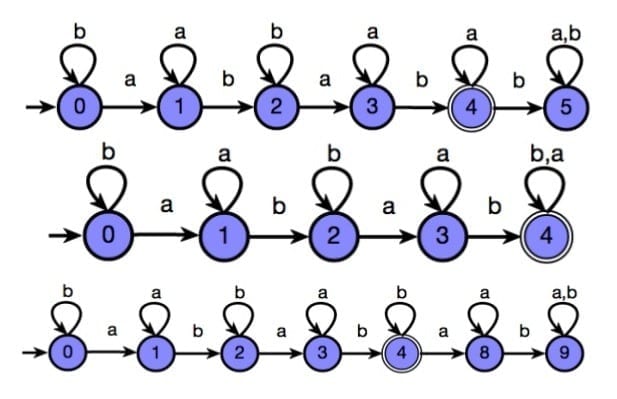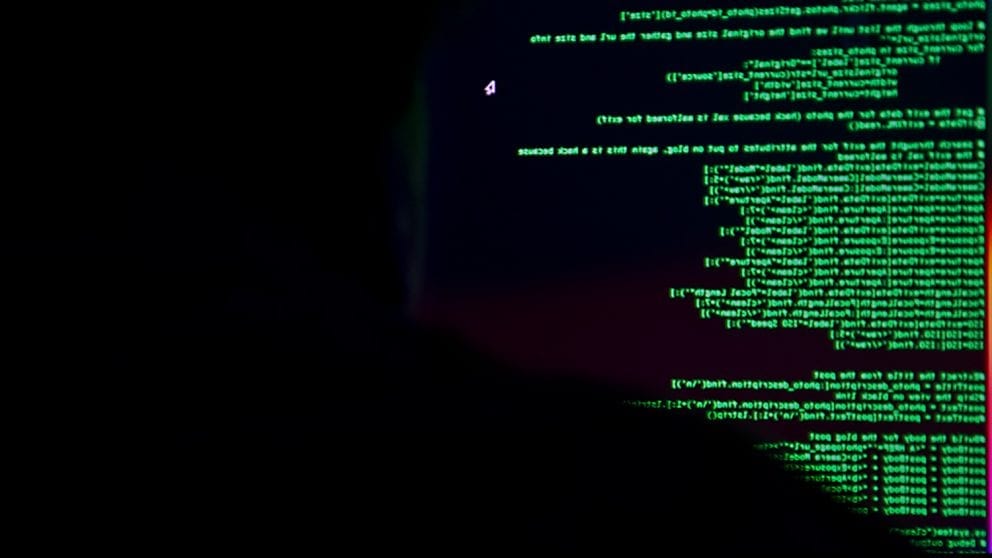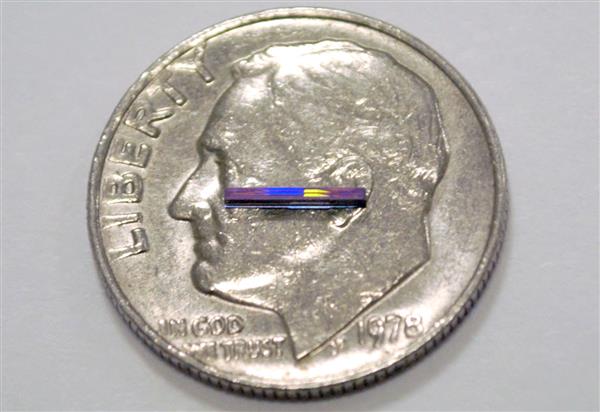
Credit: ExCAPE
Harnessing automated program synthesis allows non-programmers to create working code
Nobody said computer programming was easy. But maybe in the future, it could be.
In order to simplify program development, a National Science Foundation (NSF)-supported project called Expeditions in Computer Augmented Program Engineering (ExCAPE), is developing technology that provides human operators with automated assistance.
“Computers have revolutionized our daily lives, and yet the way we program computers has changed little in the last several decades,” said Rajeev Alur, a professor in the department of computer and information science at the University of Pennsylvania.
Alur heads a team of researchers — representing nine leading computer science programs in the U.S. — that collaborates on the ExCAPE project. NSF supports ExCAPE with a $10 million, five-year Expeditions in Computing award, which funds interdisciplinary research teams working to transform computing and technology.
Alur said the team is taking on a longstanding problem: “Software development remains a tedious and error-prone activity.”
Using a model of programming called automated program synthesis, however, computers can generate pieces of code based on a user’s intent, expressed using various non-code-based forms, such as examples, demonstrations or natural language commands.
“ExCAPE aims to change programming from a purely manual task to one in which a programmer and an automated program synthesis tool can collaborate to generate software that meets its specification,” Alur said.
By removing the need for would-be programmers to learn esoteric programming languages, the method has the potential to significantly expand the number of people engaged in programming in a variety of disciplines, from personalized education to robotics.
Programming tools
Emerging technology known as Software-Defined Networks (SDN) allows network operators to tailor a computer network to the traffic running on it, thereby improving efficiency. Most network operators, however, are not traditional programmers and, as a result, cannot take full advantage of all the technology offers.
To address this shortcoming, the ExCAPE team developed a tool called NetEgg that lets a network operator specify the desired functionality of a switch using examples. NetEgg then automatically generates the code needed to implement that behavior while ensuring maximal throughput for network traffic.
Now patented, NetEgg has already been tested in a classroom setting and forms the basis of an NSF I-Corps project, which will explore the product’s transition to commercial deployment.
Computer-aided education and beyond
Looking at the growing area of online learning, the ExCAPE team further recognized the role that program synthesis tools could play in generating automatic feedback for students — analyzing their solutions, grading their assignments, and providing meaningful explanations of their mistakes.
That’s why the team created Automata Tutor, which has been used by more than 5,000 students from more than 10 universities around the world. Alur and his colleagues presented the results from the early deployment of Automata Tutor in ACM Transactions on Computer-Human Interaction and at theInternational Joint Conference on Artificial Intelligence.
The group has created other tools, including AutoProf, which provides feedback on introductory programming assignments in computer languages, such as Python. Another tool, CPSgrader, automatically grades laboratory courses in cyber-physical systems and provides feedback.
More broadly, the ExCAPE team was able to develop a method that formalized and standardized the core computational problem in emerging synthesis tools. Called Syntax-Guided Synthesis, the new method has allowed the team to build a number of prototype solvers over the past two years.
“This effort has been instrumental in advancing the state-of-the-art in computational approaches, and it has facilitated novel applications of program synthesis, for instance, in automatic optimization of programs for quantum computers,” Alur said.
Industry adoption
The ExCAPE team’s research has affected the commercial software world, too. Its notion of syntax-guided synthesis inspired Microsoft to create automated program synthesizers for its suite of software.
“At Microsoft, we have invested significantly in the field of program synthesis, especially programming-by-examples, and with applications to end-user programming,” said Sumit Gulwani, of Microsoft Research, USA.
Microsoft started out by developing domain-specific synthesizers such as FlashFill and FlashExtract, each of which uses examples to generate custom code that improves efficiency. FlashFill, which was released as a feature of Microsoft’s Excel 2013, allows data entered into one column of a worksheet table to be entered in a new table column using only a few keystrokes. FlashExtract, which was included in Microsoft’s PowerShell and Operations Management Suite, extracts structured data from semi-structured log files using examples.
The technology giant has also developed a generic programming-by-example synthesizer called FlashMeta.
“All of our ongoing development of by-example synthesizers at Microsoft for various domains is now being carried out over the FlashMeta framework,” Gulwani said. “In fact, we have set up an entire research and engineering team for development of this framework, called PROSE. This has yielded one order of magnitude effectiveness in the overall development process.”
In years to come, the process of using coding languages for programming may be seen as an evolutionary step in computing, just as other methods replaced the punch cards and assembly languages used to program early computers.
“This project builds on decades of foundational advances in formal methods and programming languages,” says Nina Amla, program director in the Division of Computing and Communication Foundations at NSF. “It signals a paradigm shift in the way we teach basic programming principles, and develop reliable software systems.”
Learn more: Computer programming made easier
The Latest on: Computer programming
[google_news title=”” keyword=”computer programming” num_posts=”10″ blurb_length=”0″ show_thumb=”left”]
via Google News
The Latest on: Computer programming
- Study demonstrates efficacy of web programming course for incarcerated individualson April 25, 2024 at 12:42 pm
Several years ago, a team of scientists from MIT and the University of Massachusetts at Lowell designed and deployed a first-of-its-kind web programming course for incarcerated individuals across ...
- KCHS programmers take 3rd in SU programming competitionon April 23, 2024 at 4:51 pm
A team of three Kent County High School students tied for third place in a computer programming competition last month at Salisbury University.
- New BYU computer science study shows four ways students are actually using ChatGPTon April 23, 2024 at 9:31 am
The results of a new BYU study show that students are taking advantage of OpenAI’s interactive, iterative nature to converse with ChatGPT as they might with an instructor.
- Are Coders' Jobs At Risk? AI's Impact On The Future Of Programmingon April 15, 2024 at 9:24 am
Nvidia CEO Jensen Huang caused a stir when he declared recently that kids no longer need to learn to code - AI will do that for us. Is he right?
- KS1 / KS2 Computing: Computer programmingon March 27, 2024 at 3:41 am
Free teacher classroom resources suitable for use in computing lessons with primary school children at Key Stage 2 in England, Wales and Northern Ireland, and at 1st and 2nd Level in Scotland.
- Computer Scienceon November 12, 2023 at 1:11 pm
Through the study of computational theory and applied computer programming, you will develop the skills to solve endless problems. From making websites faster, cooler and more responsive to developing ...
- Computer Science Courseson October 15, 2023 at 3:35 pm
Topics include hardware, software, algorithms, operating systems, networks. An introduction to computer programming motivated by the analysis of biological data sets and the modeling of biological ...
- Computer programmingon June 1, 2023 at 5:00 pm
UEA students will learn machine learning programming in a collaboration with ... The credit card-sized Raspberry Pi computer allows pupils to learn coding at a fraction of the cost.
- how to easily become rich from computer programming?on November 20, 2022 at 7:32 am
There has been an all-time high salary for computer programmers -- $100,000 -- over the past few years. Language may be of value to some, but not all. It's a shame to burst the bubble, but programming ...
- Computer Programmingon May 13, 2022 at 2:03 pm
This course introduces students to the fundamentals of computer programming as students design, write, and debug computer programs using the programming language Python and R. The course will also ...
via Bing News










